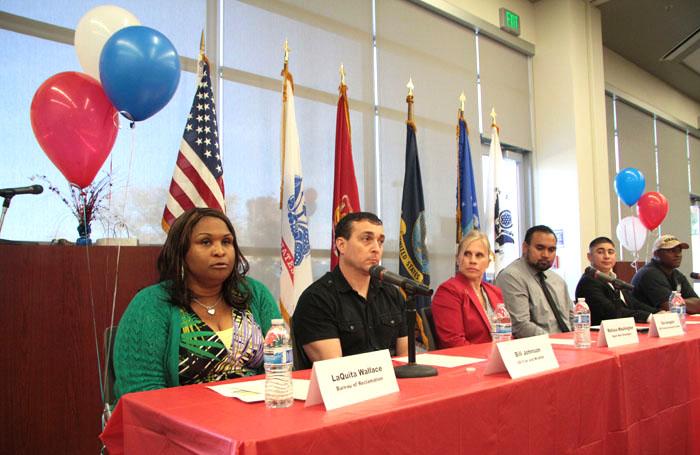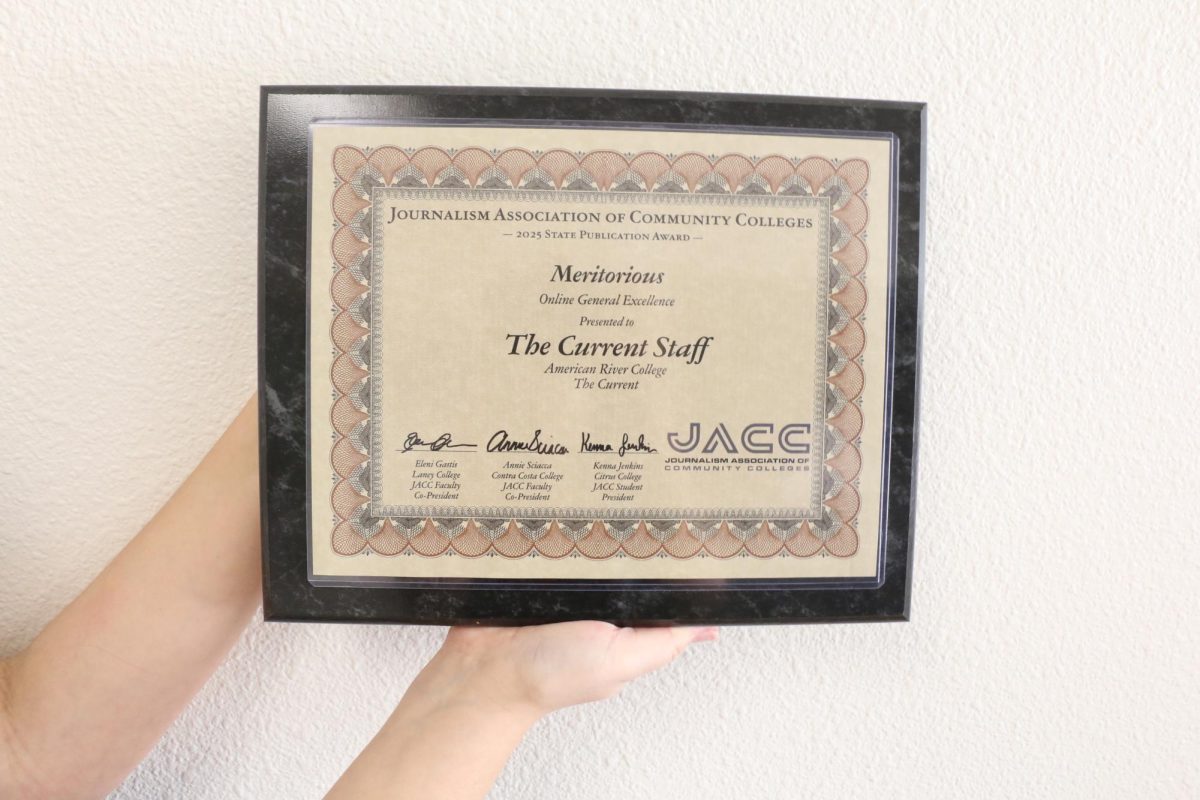“In the military, you have your own way of networking — your own units that you connect to — and when you come back to regular society, you must remake those connections again,” said ARC Veterans Resource Center employee Dan Avegalio, to an audience of ARC students and veterans during a panel on teaching veterans how to find civilian work held in the American River College community rooms on Nov. 6
Many veterans say it’s a “culture shock” to return to civilian life after active duty.
The panel of presenters included Avegalio, LaQuita Wallace of the Bureau of Reclamation, Bill Johnson of the U.S. Fish and Wildlife Service, Melissa Washington of Smart New Strategies, Roger Robles of ARC’s financial aid, and Cpl. Noah Winchester of the Los Rios Police Department — all veterans themselves.
The each presenter spoke of their experiences coming back from active duty before answering a set of questions regarding the transition process and how handled it.
One question addressed how vets regain their communication skills and stay connected with individuals. Washington reccomended LinkedIn, a networking website that helps people find new job opportunities and stay connected to professionals.
“Eighty percent of jobs can be found by networking,” said Washington.
Robles recommended that students visit the Veterans Resource Center and make connections in the campus community.
“I can’t recommend it enough: Get plugged in to the campus,” Robles said.
Wallace recommended that veterans maintain a strong resume.
“Many returning veterans have the skills needed, but lack the penmanship,” said Wallace.
Wallace also said that volunteering and internships are a way to gain other skills to put on your resume.
According to the presentation, it is common for returning veterans to experience workplace triggers and have flashbacks of being at war.
“Many veterans that trigger in workplace cope by hiding it so they are not looked at differently,” said Avegalio.
The panel concluded that if any veterans are experiencing these “triggers,” they should talk to their managers and address the situation accordingly. Most managers are willing to make accommodating changes, the panel advised.














